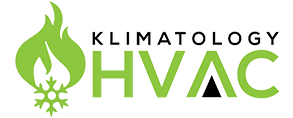
In Raleigh, North Carolina, the peak HVAC (Heating, Ventilation, and Air Conditioning) month aligns with the city’s climate. Raleigh experiences a subtropical climate with four distinct seasons, although some seem to last longer than others. The peak HVAC months for air conditioning and heating are as follows:
Cooling Season (Peak HVAC Months for Air Conditioning): The cooling season, when air conditioning usage is at its peak, occurs during the warmer months:
- Late spring to early fall: The peak cooling months in Raleigh are typically from May to September. Temperatures start to rise in May and continue to stay warm through September. July and August are often the hottest months, requiring the most use of air conditioning systems to keep indoor spaces cool.
Heating Season (Peak HVAC Months for Heating): Raleigh’s winters are relatively mild compared to many northern states, but there’s still a need for heating during the colder months:
- Late fall to early spring: The peak heating months in Raleigh are usually from November to March. While winters are generally mild, temperatures can still drop, especially in the evenings and early mornings. The coldest month is January where the average low is 33°F and high is 51°F. Heating systems, such as furnaces or heat pumps, are used to maintain comfortable indoor temperatures during this time.
It’s important to note that the specific timing of the peak HVAC months can vary slightly from year-to-year due to weather fluctuations. Raleigh’s climate is influenced by its location in the southeastern United States, so it’s advisable to pay attention to local weather patterns for the most accurate information.
When should I get maintenance?
To ensure your HVAC system is prepared for both cooling and heating seasons, regular maintenance is recommended. This can help you stay comfortable throughout the year while also promoting energy efficiency and reducing energy costs.
It’s best to get maintenance when temperatures are starting to decrease/increase but not yet at the peak months where the system is running often. That would be in the late Spring and Fall.

